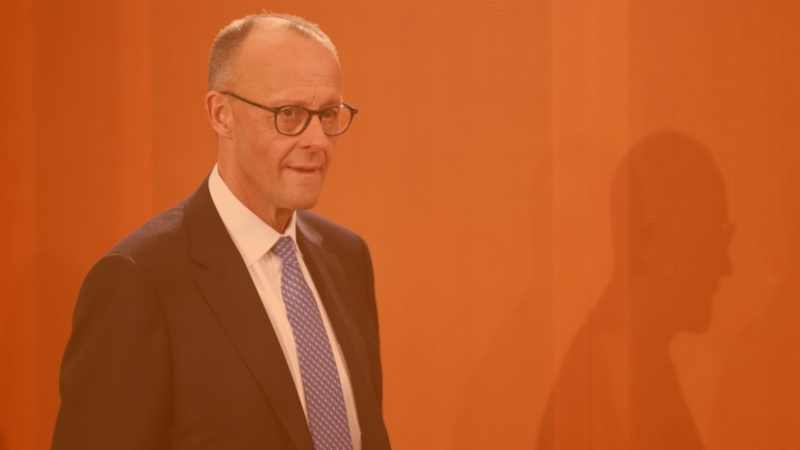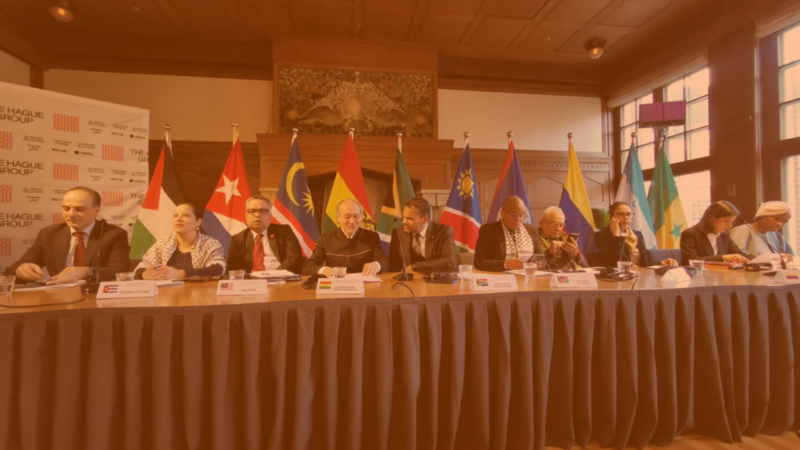More than six months after his speech on “the re-foundation of a sovereign, united and democratic Europe” at the Sorbonne University, French President Emmanuel Macron laid out once more his vision for the EU yesterday morning in Strasbourg, in front of the European Parliament, convened in a plenary session. This second speech was generally well received by the audience. The President of the European Commission, Jean-Claude Juncker, greeted him by proclaiming that “the true France is back”, while the head of the liberal-democratic group ALDE, Guy Verhofstadt, urged him not to fall back, by paraphrasing a famous quote by Georges Danton: “Audacity, then again audacity, always audacity and Europe will be saved”. President Macron argued his case passionately and compellingly, thus presenting himself both as the head of a founding member of the Union and as a continental leader that aspire to play a major role in the next European Parliament election. However, which vision for Europe did he provide?
Macron’s Europe: democracy, sovereignty and identity
The French President started his 25-minute-long speech by warning his audience against the menace of a European civil war, triggered by the resurgence of national egoisms in the face of the challenges posed by the new century. He then continued by sharing two “strong convictions”, which should constitute, in his view, the common ground for the battle to be fought in the next European Parliament election: first, that European nations should stand by the very ideal of democracy, with all that it entails; second, that the demands for social and economic protection expressed by European citizens in various national election rounds can only be addressed by establishing a new “European sovereignty”. Democracy and sovereignty are thus the two keywords through which Macron’s speech should be read and understood. Furthermore, President Macron tightly connected those two concepts to a third one — the concept of identity — which he defined as a particular “model of democracy in action”.
But in what does such a “European democracy” consist?
The answer lies in a Freudian slip that Macron committed as he referred to the European Parliament as an institution devoted to “vivifying democracy in Europe, as Tocqueville called it”. The title of Alexis de Tocqueville’s masterpiece is Democracy in America, whereas Democracy in Europe is that of an essay co-authored in 2012 by former Italian Prime minister and European commissioner for competition Mario Monti with former Member of the European Parliament — as well as Emmanuel Macron’s own Defence minister — Sylvie Goulard. This pamphlet offers an interesting “Tocquevillian take” on the question of the democratic deficit of European institutions. Notably, the two authors characterize such a deficit not as a crisis of European democracy, but as a crisis of democracy in Europe, in the sense that they locate the problem at the very root of the European political order: the sovereign authority of each nation state.
In Monti and Goulard’s view, the process of European integration constitutes precisely the solution to such a crisis, since it is part of the same “push towards equality” that Alexis de Tocqueville singled out as the driving force behind the demise of the “Ancien Régime” and the success of the bourgeois revolutions. True equality among European citizens requires the constitution of a European “democracy by the people” through their participation in the election of representatives, who then deliver a “democracy for the people” by improving the competitiveness of the European economic system. The “Tocquevillian” inspiration for Monti and Goulard’s analysis becomes apparent precisely in the way in which they conceive of the necessary conditions for the emergence of a European “democracy by the people”: by the constitution of a European “demos”, unified through a European democratic “ethos”.
In Democracy in America, Tocqueville contends that political institutions, legal systems and social customs are defined by a “social condition”, or a particular way of life. In the case of the “Anglo-Americans”, such a condition was “essentially democratic”, or egalitarian. In Tocqueville’s view, the “taste for free institutions” that characterized the young American Federation was, therefore, a direct consequence of an egalitarian ethos, which made “men independent of each other” and gave them “a habit and a taste for following, in their private actions, no other guide but their own will.”
It is precisely for this reason that, in his last speech, Emmanuel Macron identified the basis for a European sovereignty in the “authority of democracy”, or, more precisely, in the authority of that particularly vigorous and vibrant form of (liberal) democracy that constitutes, in his view, the true European ethos, and which consists of three key elements: “a passion for freedom”, “a taste for equality” and the respect for diversity.
However, he also stressed the conviction that such an ethos must translate into effective government in order to meet the daily life demands of European citizens. That is why a European democratic sovereignty must supplement that of nation states, instead of diluting it. More precisely, President Macron identified some major axes on which such a European sovereignty should focus: immigration, through the constitution of a European asylum system; the Europe-wide taxation of the GAFA (Google, Amazon, Facebook and Apple) in order to garner autonomous fiscal resources for a common budget; the reform of the European monetary, banking and economic union, implying both solidarity and competitiveness through structural reforms; the integration of the European higher education system and the definition of a common intellectual property rights framework; a common European foreign and defence policy framework; common trade policies, both forward-looking and protective; climatic and energetic sovereignty, to be attained through a European carbon taxation system; sovereignty in the domain of nutrition and health, through the implementation of common quality standards for foods and drugs; digital sovereignty, through the protection of European citizens’ data; social sovereignty, through a common social rights platform.
But the question remains: How can such a plea for a democratic integration of European states be consistent with Emmanuel Macron’s often mocked “Bonapartist”, or even “neo-monarchical” style of presidency?
Re-enchanting authority: the return of the king?
As French historian — and former mentor to Emmanuel Macron — François Dosse argues, the style of the new French President must be understood in connection with the thought of French philosopher Paul Ricoeur, to whom Macron served as an assistant in the last years of his life. In an interview he gave in 1998, Ricoeur describes the fundamental problem of the post-theological modern state, born with the French Revolution, as follows: since the bond that ties society together requires not only a horizontal dimension (“the will to live together”), but also a vertical one, i.e. that of authority, how can the latter spontaneously emerge from the former, in the absence of any external (religious) source of legitimation? Ricoeur’s answer consists in suggesting that the vertical bond constituted by political authority should be “re-enchanted”, yet not by a parallel authority, but through a “bottom-up” process. More precisely, by drawing on John Rawls’ concept of “overlapping consensus”, Ricoeur contends that different ideological and religious worldviews should accept to live in a “consensual-dissenting” relationship to one another, by trying to find a middle ground in the search for the meaning of social life, without renouncing to engage in a reasonable public debate to defend their own positions.
Manuel Macron’s self-styled “Jupiterian” approach to the presidency of France might be seen as an alternative “top-down” attempt to re-enchant authority by manufacturing an overlapping consensus of values and meanings. In such a view, the President, as an individual, should act as the catalyst of all social and political conflicts, in order to provide a “progressive” synthesis, where the adjective “progressive” must be understood in the neo-liberal sense of the word. That is why, in the name of facing the challenges of modernization, Emmanuel Macron has constantly tried to topple all established cleavages, starting with the traditional “left vs right” one and proceeding to newer ones: “sovereignty vs European integration”, “openness vs protection”, etc. Furthermore, such a vision of the role of the presidency in French society is coupled with a vision of the historical role of France within Europe, which is rooted in a tradition that dates back at least to the presidency of François Mitterrand.
From such a standpoint, France should take over the political leadership of the continent, in order to counterbalance the economic and industrial leadership of the German Federation. The stability of the European democratic order should thus be granted by a close “confrontational cooperation” between those two powers, which should also constitute the basis for a European patriotic sentiment. That is why Emmanuel Macron is determined both to challenge the German conservative leadership, considerably weakened by the results of the last federal elections, and to gain credibility, by implementing swift neoliberal reforms at home. In this sense, he can thus be said to aspire to be a “monarch”, i.e. to embody the full power of political authority in France and that of historical necessity in Europe.
And so we arrive at our final question: how should a movement like DiEM25 position itself with respect to this political project?
The king is dead, never again shall there be a king!
Emmanuel Macron’s leadership should be credited with the merit of rekindling the debate over the necessity of pushing for comprehensive reforms of the EU by ensuring the democratic participation of European citizens. Such a prospect is perfectly in line with DiEM25’s progressive manifesto.
However, there exist at least three fundamental points of divergence between our movement’s and President Macron’s project. First, whereas Macron’s plan intends to build a European sovereignty on the Westphalian model, DiEM25 is committed to the constitution of a European demos in which multiple sovereignties could be exercised in parallel, by breaking the false equivalence between sovereignty and power.
Second, DiEM25 is working towards the emergence of a democratic, progressive and pro-European consciousness in the whole continent, and not towards a multi-tiered union, with different levels of integration.
Third, and most importantly, contrary to President Macron’s understanding of the authority of democracy, DiEM25 is devoted to constituting a horizontal, spontaneous and rhizomatic form of political and social organization, the legitimation of which depends on the will of freely associating citizens and groups of citizens.
It is for those reasons that, while acknowledging any progress that could be made in the direction of a deeper European integration, DiEM25 shall always remind us that, as Shakespeare put it, “if we live, we live to tread on kings”.
Nicola Bertoldi is currently pursuing a PhD in history and philosophy of science at the University of Paris 1 and is an active member of DiEM25.
Do you want to be informed of DiEM25's actions? Sign up here















